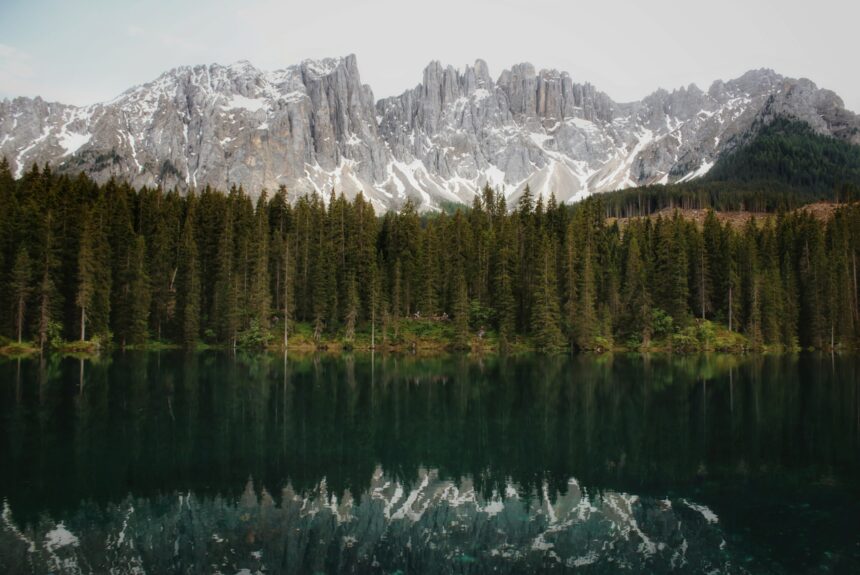Take your pick of a dictionary and you’ll find that “conundrum” is defined as a difficult, intricate, hard problem to solve, and sometimes even a riddle. Take climate change for example. Some argue that climate change is the most serious issue of our time. Others argue that it’s a hoax. Still, others see it as a serious issue that can be solved. Regardless of where you find yourself on this question, it’s a real conundrum that can’t be ignored. Let’s break it down and examine some of the pieces.
Start with nuclear power. Many of the same environmentalists who are pulling the climate alarms are unwilling to embrace nuclear power, and yet it’s one of the cleanest and safest forms of energy.
>>>READ: Let’s Remind Ourselves Again: Nuclear Energy Is Safe
Then there’s renewable energy, which most people associate with solar panels and big wind turbines. These technologies already play an important role in the clean energy economy and have tremendous potential to provide electricity without emitting greenhouse gas. Yet manufacturing them does emit greenhouse gasses. And in fact, we need petroleum products to make them. More importantly, much of the manufacturing happens in China, led by communist leaders who abuse children through forced labor and persecute religious groups that don’t bow to the CCP’s agenda. Furthermore, China’s environmental track record is abysmal and miles apart from its climate rhetoric.
In the developing world, the climate conundrum is even harder. Developing countries are positioned to be hit hardest by any impacts of the changing climate, mainly because they don’t have the infrastructure to cope with extreme weather and higher temperatures. What they need most is to lift their people out of poverty so that then they can better adapt to the changing climate. To do that, they need energy. Today’s most reliable, affordable and accessible energy sources still produce the most greenhouse gas, further adding to the problem. A serious conundrum.
Then there are the policy conundrums. Look at Germany, which started shutting down its nuclear plants a decade ago following the meltdown at Fukushima, only to become reliant on fossil fuels from Russia instead. Now that Putin is attacking Ukraine and the West is trying to punish Russia by not buying its fossil fuels, Germany is facing an energy crisis of its own making. It is learning in real-time that renewable power just isn’t ready to fuel the entire grid of a modern industrial nation.
So how do we solve this climate conundrum? We need to pursue an across-the-board solution that involves unleashing free enterprise to drive innovation and competition. We need to accelerate energy innovation through the power of free markets. If you want specifics, take a look at C3’s recently released Climate and Freedom Agenda. Implementing these solutions would increase opportunities for domestic natural resources, nuclear power, and renewable energy technologies. Reducing barriers and speeding up the deployment of cleaner, more efficient energy resources will boost families, businesses, and the planet.
Fundamentally, convincing people about the risks of climate change is far less important than accelerating innovation and adaptation. Few of us really understand how a 737 can carry more people more safely than a car, and yet it does. Few of us understood the potential of fracking to unlock American gas and oil supplies, and yet it did, triggering a new age of plentiful energy with a smaller climate footprint. Americans are constantly finding ways to overcome problems through innovation and adaptation.
>>>READ: Innovations Show Promise and Challenges with Energy Transition
More than two-thirds of Americans say they want to develop alternative energy sources and be carbon neutral by 2050. But where will those technologies come from? Who will mine the minerals for the batteries and wind turbines? What would be the environmental impact of that mining? The answers can’t be mandated; they will be developed as innovators work on and solve problems. The only answer to this climate conundrum is economic freedom. Only economic freedom will empower that cleaner energy future.
Restricting growth, on the other hand, would be bad for people and the planet. We can’t tax or regulate our way to a cleaner economy. We can only innovate our way there by unleashing the private sector with fewer and lower barriers.
We are constantly being told that climate change is an existential crisis, creating the sense that all hope is lost. Americans could buy into this pessimistic view of the world, turn out the lights and hope for the best, but that isn’t in our nature. Globally, governments could seek to impose heavy-handed mandates to put the brakes on GHG emissions, but that would do irreparable harm to families and businesses, and in the end, be far worse for the environment. Or we could do what’s been proven to work.
We can solve this climate conundrum with proven policies rooted in economic freedom. When countries embrace free enterprise and lean towards freer markets, good things happen. We can accelerate the development of cleaner, more sustainable economies and environments with stable democracies around the world.
We can solve the climate conundrum. Economic freedom is the key.
The views and opinions expressed are those of the author’s and do not necessarily reflect the official policy or position of C3.
